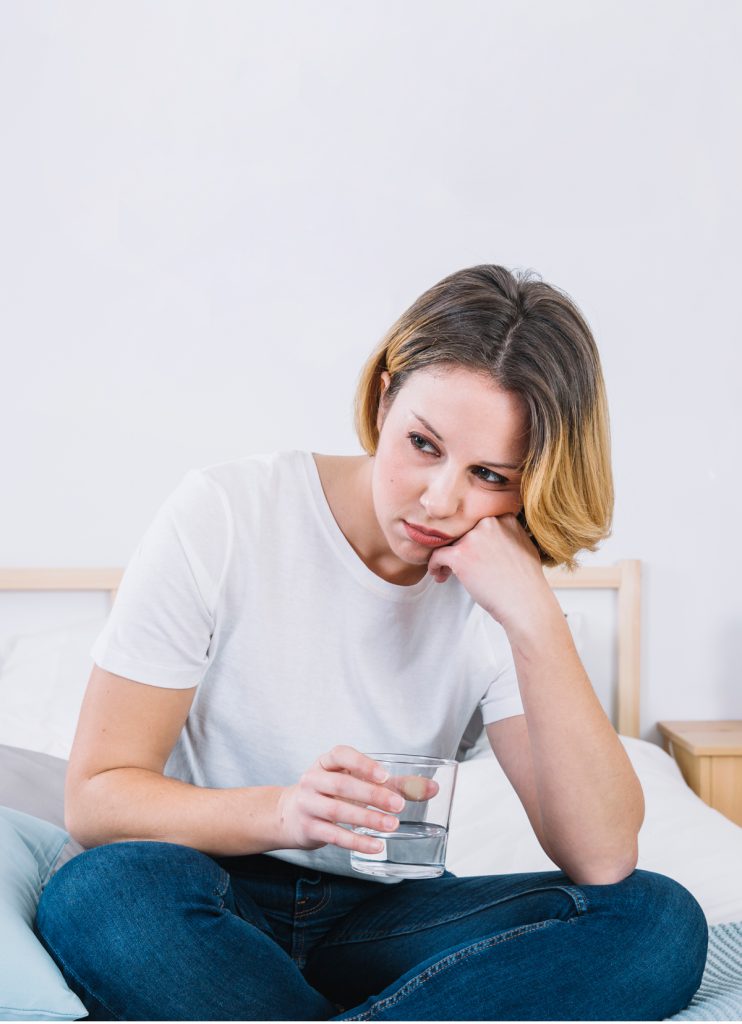Menopause is a natural part of life for all women. While some women dread the hot flashes and sleep issues, it’s important to stay calm. Attitude and outlook make a big difference in regards to managing menopause effectively.
Below, we tackle some of the most pressing questions women ask about menopause.
When does menopause start?
Menopause means your ovaries are no longer producing estrogen. Yes, you will stop having periods.
This usually starts at 51 years old, which is the average age for onset. However, women can have their last period between the ages of 45 and 55. Though the onset age is said to be determined genetically, things like chemotherapy and smoking can damage your ovaries, leading to earlier menopause.
How do I know when I’ve hit menopause?
It can be tough to determine when the onset of menopause actually begins, because your periods will be irregular in the years leading up to onset. These years preceding menopause are called perimenopause.
You can be sure that menopause has begun for you when you’ve gone without a period for 12 months.
Why does menopause happen?
Your female hormone levels decrease as you age. This is a natural part of growing older.
Note that hormone levels decrease, not stop. Your body does not stop producing natural hormones during menopause; it only produces less than usual. These hormones never stop being produced entirely.
Does menopause happen to men, too?
Not exactly, but their testosterone levels also decrease as they age! Some people refer to this as male menopause, but it can also be caused by conditions such as diabetes.
What can I expect during menopause?
It’s important to note that every woman is different, and thus, each experiences menopause in their own unique way. Don’t worry; menopause usually doesn’t impair a woman’s quality of life. Some women don’t have any symptoms at all!
1 out of 10 women reported feeling clinically depressed during menopause.
Most common side effects of menopause include:
-
- Hot flashes
- Cold sweats
- Breast pain
- Vaginal dryness
- Mood swings
- Headaches
- Weight gain
- Fatigue
Will menopause affect my sex life?
While some women report changes in their sexual desire and activity, others do not. Again, menopause affects different women in different ways.
In fact, around 2/3 of women ages 50-79 report feeling satisfied with their sexual activity.
Since vaginal dryness is a symptom of menopause, that can lead to decreased sex drive. However, using water-based lubricant during sex can solve this painful, uncomfortable problem easily!

Does menopause lead to bone loss?
Yes, due to the loss of estrogen in the body. Some women experience as much as a 20% drop in their bone density in the 5-7 years following onset.
Can Hormone Replacement Therapy (HRT) help me relieve my symptoms?
While HRT can help relieve symptoms of menopause, using HRT long-term can be dangerous. Long-term use of HRT can lead to blood clots, strokes, and heart attacks and may also increase your risk of breast cancer.
A period of six months to two years of Hormone Therapy is a good timeline if you’re looking to relieve your symptoms without ill effects.
Contact Aurora Gonzales, MDPA & Associates today!
Aurora Gonzales, MDPA & Associates is proud to offer compassionate, patient-centered gynecology and obstetrics services by their exceptional all-female team of experienced doctors. If you’re looking for healthcare with a heart, you’ve come to the right place.
Contact us today at 713-757-9905.
Frequently Asked Questions about Menopause | Your OB/Gyn – Houston, TX

